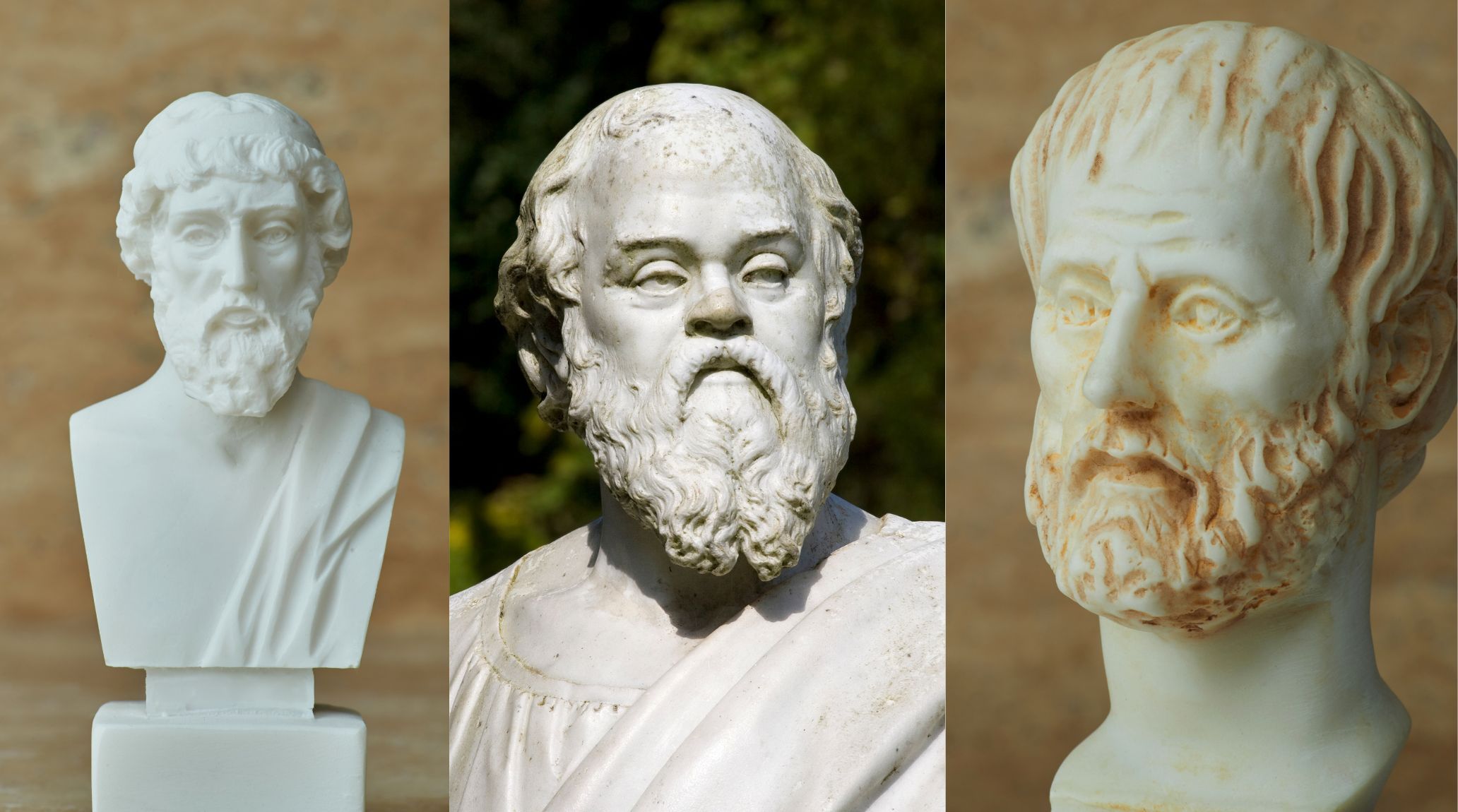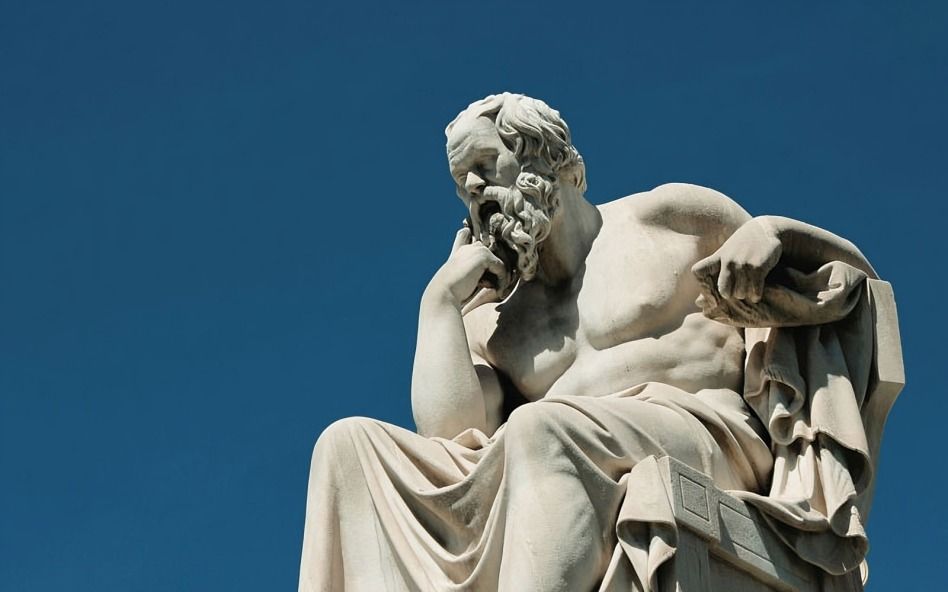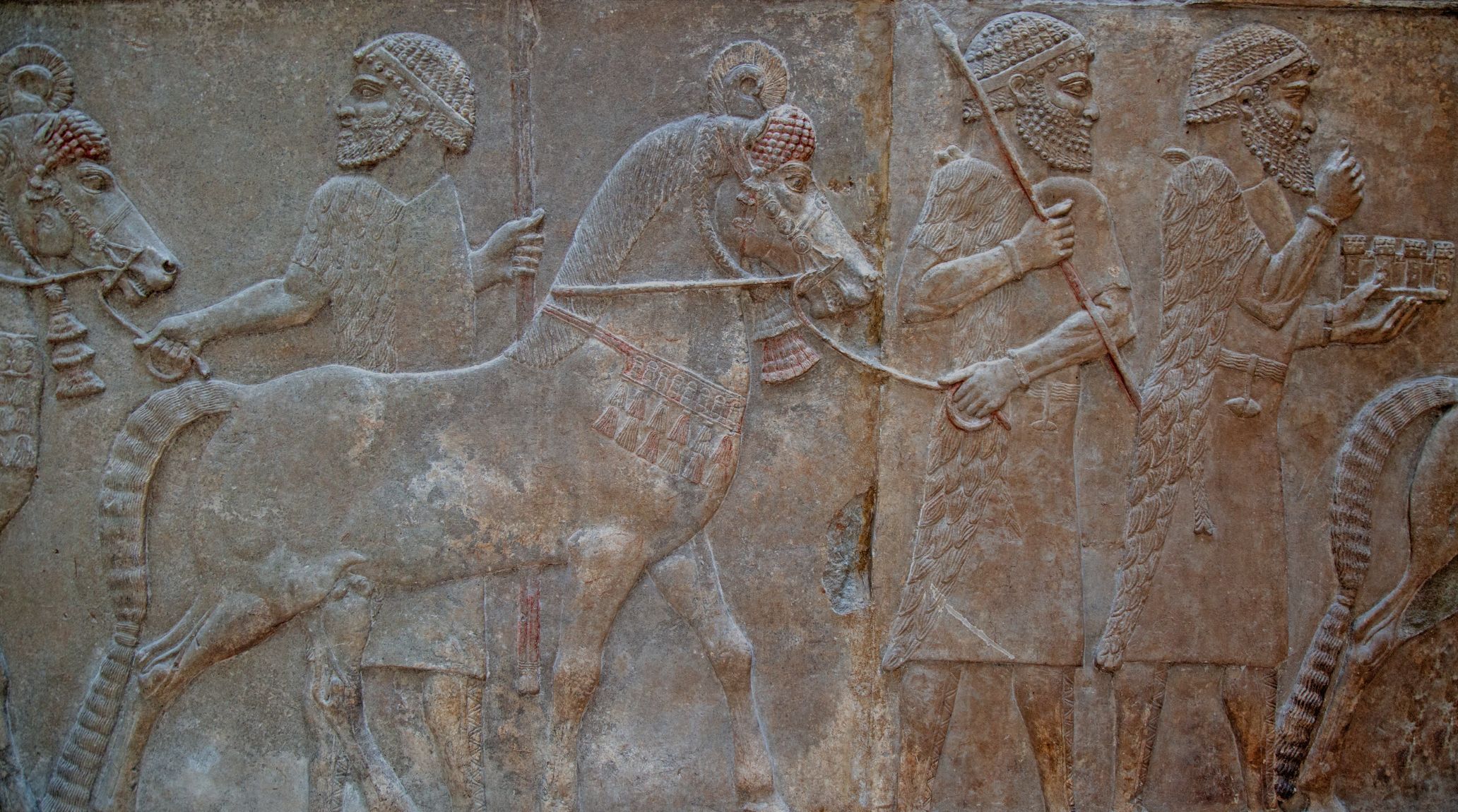
“
Facts About Philosophers of Ancient Greece reveal their profound influence on thought, science, and politics, shaping the foundations of modern civilization in ways that still resonate throughout today's world. In this blog, we delve into 20 fascinating facts about these legendary philosophers, exploring their teachings, lives, and the profound influence they had on both their contemporaries and future generations.1
1
1
1
”
Socrates, often seen as the father of Western philosophy, left no written records. His ideas were preserved through his student Plato, who documented Socratic dialogues that shaped later philosophical thought. 1
Plato, a student of Socrates, founded the Academy in Athens around 387 BCE. It became one of Western civilization’s earliest higher learning institutions, with Aristotle among its notable students. 2
Aristotle, a student of Plato, tutored Alexander the Great, who would go on to build one of the largest empires in history. Aristotle’s influence on his students helped spread Greek culture and philosophy across the ancient world.3
Socrates believed 'the unexamined life is not worth living' emphasizing self-reflection and questioning norms. His Socratic Method involved asking probing questions to challenge assumptions and foster deep philosophical inquiry. 4
Plato's "Theory of Forms" suggests that the physical world is a mere shadow of the true, eternal world of ideas or forms. He believed that everything we see reflects a more perfect and unchanging reality.5
Aristotle rejected Plato’s Theory of Forms and instead focused on empirical observation. He is considered the founder of logic and the scientific method, emphasizing that knowledge comes from sensory experience and logical reasoning. 6

Socrates was sentenced to death in 399 BCE for allegedly corrupting the youth of Athens and questioning the gods. He chose to die by drinking hemlock, accepting his fate as a final act of philosophical principle, and refusing to escape.
Plato's most famous work, "The Republic," explores justice, the ideal state, and the nature of reality. In it, he introduces the allegory of the cave, a powerful metaphor for human ignorance and the pursuit of knowledge. 7
Aristotle made significant contributions to biology, classifying animals into groups based on their characteristics. His work laid the foundation for the scientific study of the natural world, influencing biology and taxonomy for centuries. 8
Plato believed in the existence of philosopher-kings, rulers who possess wisdom and philosophical insight. He argued that only these enlightened individuals, with their understanding of justice and truth, should govern society for the benefit of all.9
Aristotle’s 'Nicomachean Ethics' introduced the 'Golden Mean,' the idea that virtue lies between extremes. For instance, courage is a virtue balancing recklessness and cowardice, crucial for ethical living. 10
Aristotle’s writings cover a vast range of subjects, from ethics and politics to biology and physics. His comprehensive approach made him one of the most influential thinkers in history, and his works are still studied in modern philosophy and science. 11
Socrates, Plato, and Aristotle all believed in the importance of education as a means of achieving virtue and wisdom. Their teachings emphasized the role of rational thought and inquiry in the development of a just and ethical society. 12
Plato's "Timaeus" contains one of the earliest philosophical discussions of cosmology, where he theorizes about the creation of the universe and the nature of the cosmos. This work influenced later astronomical and metaphysical studies. 13

Aristotle believed that humans are “political animals” by nature, meaning that participation in society and politics is a natural and necessary part of human life. His "Politics" examines the best forms of government and the role of citizens in the state.
Socrates was known for his modesty and simple lifestyle. He believed that material wealth and physical pleasures were distractions from the pursuit of knowledge and virtue, a philosophy that would later influence schools of thought like Stoicism. 14
Socrates’ method of questioning laid the groundwork for the modern practice of critical thinking. His approach encouraged individuals to question their assumptions and beliefs, promoting a culture of intellectual curiosity and self-awareness. 15
Plato’s Academy shaped philosophical thought for nearly 1,000 years until it was closed in 529 CE by Byzantine Emperor Justinian I. Its closure marked the end of classical Greek philosophy, but its ideas endured through the Middle Ages. 16
Aristotle's influence extended far beyond philosophy. His works on logic, particularly the syllogism, formed the foundation of formal logic, and his ideas on rhetoric are still taught today as essential principles in communication and persuasion. 17
Aristotle’s philosophy was rediscovered in the Middle Ages by Islamic scholars like Averroes and Christian theologians like Thomas Aquinas. His works became central to both Islamic and Christian thought, shaping medieval intellectual traditions. 18


